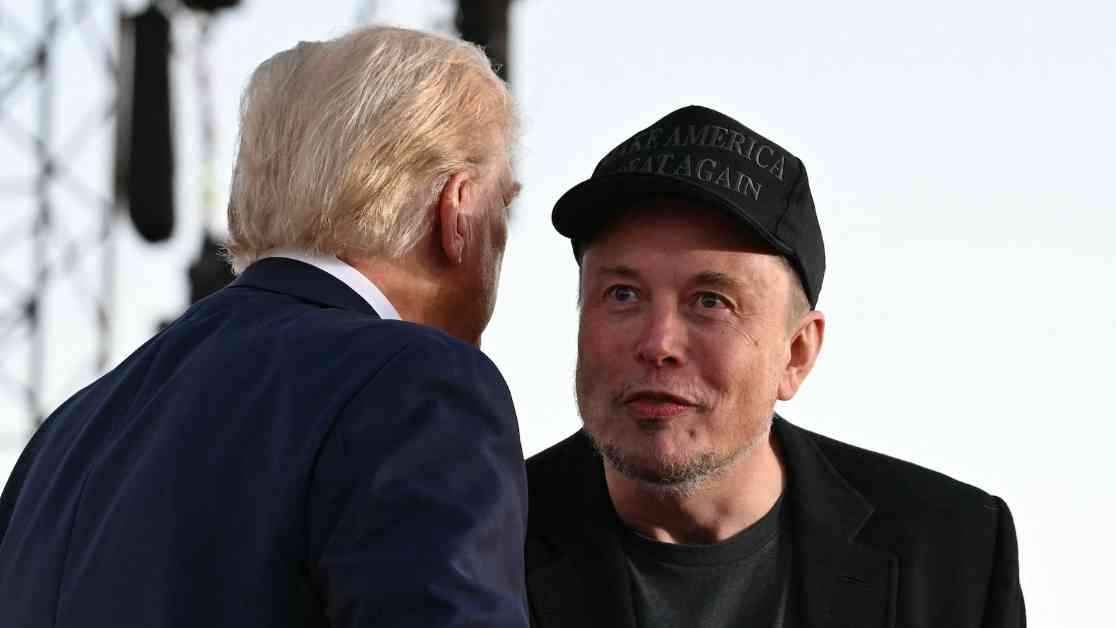In a bold move that has captured the nation’s attention, tech mogul Elon Musk finds himself at odds with the federal judiciary after his Department of Government Efficiency (DOGE) faced a court-ordered blockade from accessing critical government funds. This clash with the courts comes in the wake of sweeping buyout offers that could drastically reshape the federal government, raising concerns about the executive branch’s willingness to comply with legal directives.
The federal judiciary’s pushback against Musk’s unilateral efforts to overhaul government operations marks a pivotal moment in contemporary political history. As the billionaire entrepreneur flirts with the idea of defying court orders and targeting judges, the country faces an unprecedented scenario where the president openly challenges the authority of the judicial system.
Justin Levitt, a constitutional law expert and former senior policy adviser, sheds light on the potential consequences of Musk’s defiance. Levitt emphasizes that the courts have several tools at their disposal to enforce compliance, including escalating fines that could quickly accumulate into substantial financial penalties for both Musk and his team at DOGE.
“The sanctions can be quick and swiftly painful,” Levitt explains. “Exponential curves are not kind, and that’ll start adding up to a whole bunch of real money for which a 25-year-old is going to be liable.” While Musk’s immense wealth may shield him from immediate financial repercussions, the mounting fines could pose a significant challenge even for the world’s richest man.
Moreover, Levitt highlights the possibility of imprisonment as a consequence of continued non-compliance with court orders. Despite President Trump’s pardon power for criminal offenses, civil remedies remain unaffected by such executive authority. Levitt underscores that a potential outcome could involve indefinite incarceration until Musk and DOGE adhere to the court’s directives.
In the realm of legislative action, the role of Congress in curbing presidential overreach is a critical consideration. Levitt notes that while Congress typically serves as a check on executive power, the current Republican majority has not demonstrated a willingness to rein in the president’s actions. In fact, some lawmakers have advocated for measures that could further embolden Trump and DOGE in their defiance of court rulings.
Senator Tom Cotton of Arkansas proposed restrictions on judges presiding over cases related to the Trump administration, while Representative Darrell Issa of California announced plans to introduce legislation aimed at limiting judicial oversight of government spending decisions. These developments underscore a broader political landscape where partisan tensions and questions of constitutional authority intersect in ways that challenge the traditional balance of power.
As the legal battle between Elon Musk, DOGE, and the federal judiciary unfolds, the implications for governance, accountability, and the rule of law remain at the forefront of national discourse. The clash between the executive and judicial branches underscores the enduring importance of constitutional checks and balances in a democratic society, where no individual, regardless of wealth or influence, is above the law.
In the coming days and weeks, the resolution of this high-stakes confrontation will shape the future trajectory of government operations and the boundaries of executive authority. The outcome of Musk’s defiance and its impact on legal precedent and institutional norms will reverberate far beyond the confines of the courtroom, influencing public perceptions of accountability, transparency, and the rule of law in a rapidly evolving political landscape.


